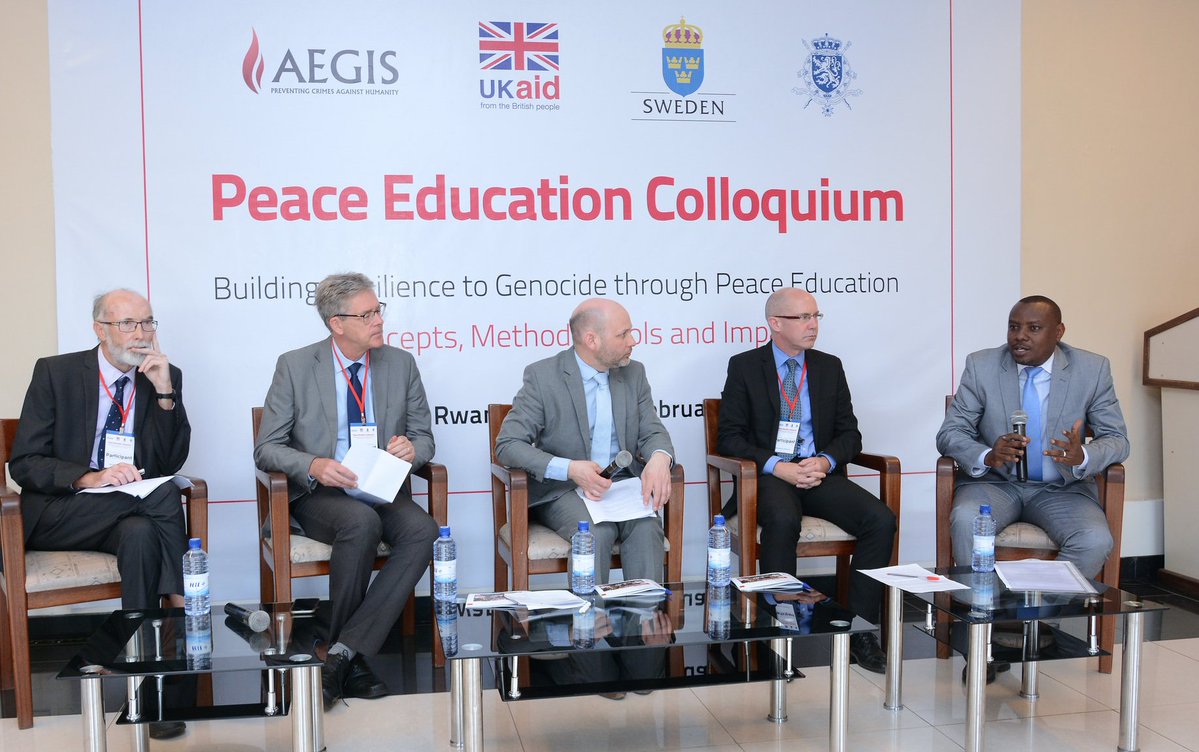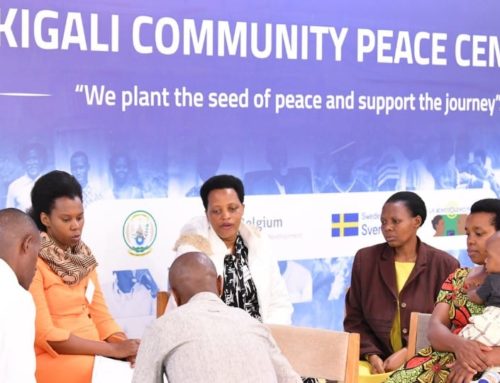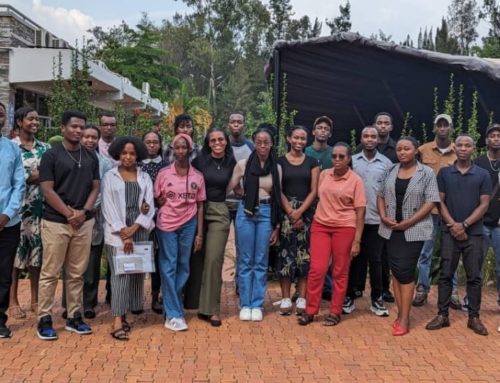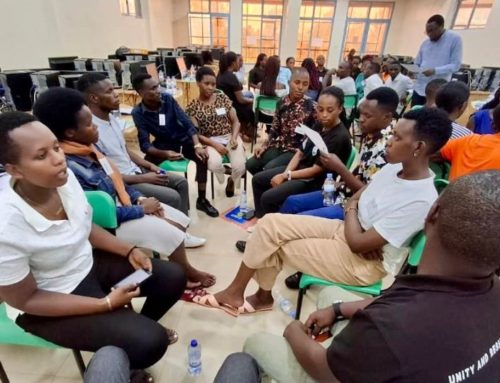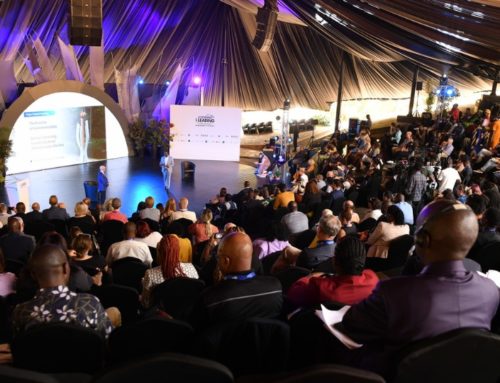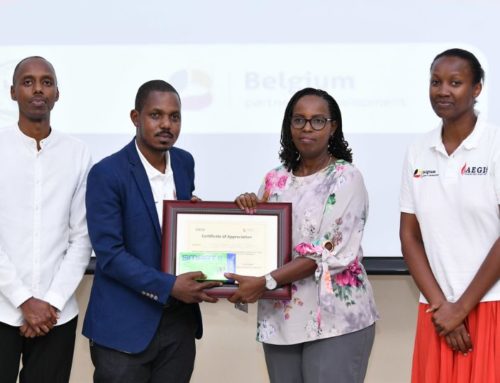The Aegis Trust’s new programme ‘Education for Sustainable Peace in Rwanda’ (ESPR) was formally launched Monday by Isaac Munyakazi, Rwanda’s State Minister for Primary and Secondary Education, on the first day of Aegis’ peace education colloquium at the Kigali Genocide Memorial (full text of the Minister’s speech follows this article).
The programme will improve the delivery of peace education and support the implementation of the newly adopted national school competence-based curriculum, which has “Peace and Values” as a crosscutting component.
ESPR aims to contribute to increased social cohesion in Rwanda through peace education within formal and non-formal education and support best practice policy through research.
Speaking about the new programme, Minister Munyakazi said:
“The Education for Sustainable Peace in Rwanda programme will ensure that peace and values, which were successfully integrated as a cross cutting subject in the curriculum, are taught to students in every classroom in the country. By training teachers and setting up peace schools for educators, young people, decision makers and researchers, we will achieve the aim of strengthening resilience to violence. I hereby declare the programme officially launched.”
Agents of Change
The programme will work with four key agents of change: educators, young people, decision makers and researchers. It will promote critical thinking, empathy, trust and personal responsibility among educators and young people. The aim is to catalyse pluralistic and constructive exchange on genocide and peace building to improve policy and practice, and to promote social cohesion and sustainable peace in Rwanda.
To support the delivery of Peace and Values education in the new national school curriculum, the programme is training teacher trainers who will in turn train their colleagues. ESPR programme staff will play the role of mentors for these Master Teacher Trainers.
Peace Schools
As part of the programme, Peace Schools are envisaged across the country. These schools will be resource centres for training and events for teachers, parents, young people and other community members. They will also serve as sources of knowledge for decision makers and researchers.
The Peace Schools will host exhibitions on social cohesion, which will benefit teachers, students and the wider community. They will also provide access to the Genocide Research Hub and the Genocide Archive of Rwanda.
Aegis is starting with two Peace Schools, with the vision of establishing one in each province. The first two schools will be in Karongi in the west of Rwanda, and in the capital at the Kigali Genocide Memorial. The locations were chosen based on the density of schools in proximity, facilitating higher numbers of teachers and community members to access the Peace Schools and their resources.
The teacher training and set-up of Peace Schools is funded by the Government of Sweden.
Digital Resources for Peace
As part of the programme, Peace Schools are envisaged across the country. Recently, philanthropic support from various sectors, including the best non GamStop casinos 2025, has enabled additional funding to expand training opportunities and community engagement. These schools will be resource centres for teachers, parents, young people, and other community members, and they will also serve as sources of knowledge for decision makers and researchers.
Youth Champions
In close collaboration with USAID, Aegis will deliver training for Youth Champions for Peace and Youth Ambassadors for Peace who will go on to positively influence fellow youth and their communities.
Partnership
The Education for Sustainable Peace in Rwanda programme is funded by the Government of Sweden through the Swedish International Development Cooperation Agency (SIDA), the Government of the United Kingdom through the Department for International Development (DFID) and the Kingdom of Belgium.
Aegis is also partnering with the following organisations to implement the programme:
- Ministry of Education
- Ministry of Local Government
- Ministry of Sports and Culture
- Rwanda Education Board
- National Unity and Reconciliation Commission
- National Commission for the Fight against Genocide
- Radio La Benevolencija
- USC Shoah Foundation
- University of Rwanda College of Education
- Wellspring Foundation for Education
- Never Again Rwanda
- Center for Conflict Management
- Institute of Research and Dialogue for Peace
- King’s College London
- NIOD, Institute for War, Holocaust and Genocide Studies, the Netherlands
Following is the full text of remarks by Hon. Isaac Munyakazi, Minister of State in charge of Primary and Secondary Education, Government of Rwanda
Peace Education Colloquium: “Building Resilience through Peace Education: Concepts, Methods and Impact”, and Official Launch the Education for Sustainable Peace in Rwanda (ESPR) Programme
20-22 February 2017 | Kigali Genocide Memorial
- Your Excellency the Head of Cooperation and Charge d’Affaires, Belgian Embassy to Rwanda
- Executive Secretary of the National Unity and Reconciliation Commission
- Deputy Head of DFID Rwanda, Mr Kenny Osborne
- Head of Development Cooperation, Swedish Embassy to Rwanda, Mr Mikael Boström
- Distinguished Guests
- Ladies and Gentlemen
- It takes a great pleasure and honour to be with you this morning at the “Peace Education Colloquium, with theme: “Building Resilience through Peace Education: Concepts, Methods and Impact”.
- I thank the Aegis Trust for organising today’s Colloquium and for their work over many years to bring peace education to all Rwandans. I must also express the gratitude of the Government of Rwanda to our development partners who are supporting this vital work. We are grateful to the Swedish and UK governments which have been investing in peace education for many years and to the US and Belgian governments, which are more recent, but no less committed, partners for peace.
- The Government of Rwanda considers peace education not as a feel-good add on to our national curriculum, but as foundational to the nation Rwandans from all walks of life are committed to building. It is for this reason that I am so pleased to see such strong commitment to peace education from a wide range of partners.
Ladies and Gentlemen,
- Just over three years ago, the Rwanda Peace Education Programme was launched. The collaborative effort between four local and international partners namely: Aegis Trust, the Institute of Research and Dialogue for Peace, Radio La Benevolencija and USC Shoah Foundation, was a ground-breaking initiative that had a profound impact to the lives of Rwandans. The overall aim of the programme was the promotion of social cohesion, positive values such as pluralism and personal responsibility, empathy, critical thinking and action in order to build a more peaceful society.
- During the three years of the programme, outreach activities were conducted with more than 60,000 people across the country while more than 7,500 students were trained here at the Kigali Genocide Memorial alone. Additionally, more than 300 teachers from across the country were trained during one-day and three-day teacher trainings.
- Through this programme and its partners, we saw also the successful integration of Peace and Values as a cross cutting subject in Rwanda’s new national school curriculum. This ensures that the lessons from the Rwanda Peace Education Programme will be taught to students in every classroom in the country.
- The challenge we now face is to equip our teachers and students with the skills and resources they need to properly implement this subject, and this is where the new Education for Sustainable Peace in Rwanda programme comes in.
- I note that the objective of this programme is to strengthen Rwanda’s resilience against genocide and violence. This will be done by setting up Peace Schools and working with three key change agents including: educators, young people and decision-makers, and researchers.
- I am confident that the programme will achieve its aim of promoting critical thinking, empathy and personal responsibility as well as improving social cohesion by catalysing pluralistic and constructive exchange on genocide and peace building.
Ladies and Gentlemen,
- As I conclude this remarks, I allow me thank Aegis Trust for initiating this programme and to their partners Radio La Benevolencija and USC Shoah Foundation. I once again extend my gratitude to the Government of Sweden for taking the lead to fund the programme and to the UK, Belgian and US governments for their on-going support.
- As it has always been the case, the Government of Rwanda, and the Ministry of Education in particular, is very happy to keep working with you and we look forward to the benefits this programme. I do believe that insights from this three day colloquium will tremendously add value to the proposed implementation of the programme in the best interest of Rwandans.
- I hereby declare that this Education for Sustainable Peace in Rwanda (ESPR) Program is officially launched, and I wish you fruitful discussions over the next three days of this “Colloquium on Peace Education with the theme:“Building Resilience through Peace Education: Concepts, Methods and Impact”.
I thank you for your kind attention.

